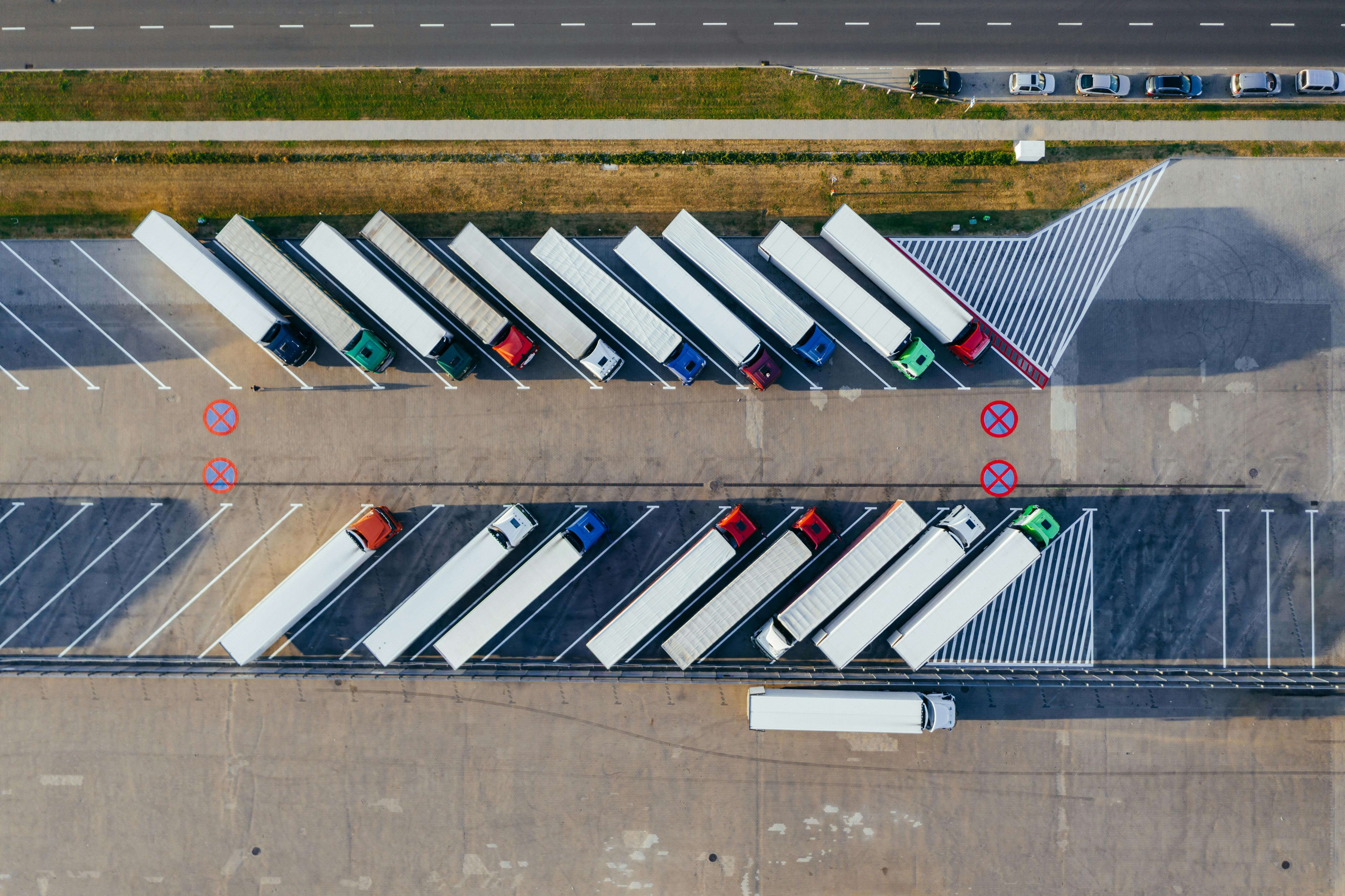March 21, 2025
Category:
News

Are you struggling to get your trucking company noticed online? In today's digital age, having a strong online presence is crucial for success in the transportation industry. Trucking SEO is the key to boosting your visibility and attracting more customers to your business. By optimizing your website and content for search engines, you can outrank competitors and connect with clients actively searching for your services. Don't let your business get left behind in the digital dust - learn how to leverage trucking SEO to accelerate your growth and drive more leads to your doorstep. Ready to shift your online strategy into high gear? Let's explore how trucking SEO can transform your digital presence and fuel your success.
Understanding the Trucking Industry's Digital Landscape
The trucking industry faces unique challenges in digital marketing. Current online trends show that customers increasingly rely on search engines to find services, making it vital for trucking companies to have a strong online presence. However, the industry's traditional offline roots can make adapting to digital marketing strategies challenging.
According to recent studies, over 70% of B2B buyers now start their purchasing process with a generic search 🔍. This shift highlights the critical need for trucking companies to optimize their online visibility to capture potential clients early in their decision-making process.
Key Components of Effective Trucking SEO
Effective trucking SEO involves several key components:
Keyword Research
Identifying industry-specific keywords such as "freight services" or "logistics providers" is essential. Long-tail keywords like "trucking services near me" can also help target specific user queries.
Here's a comparison of different keyword types for trucking SEO:
| Keyword Type | Example | Benefits |
|---|---|---|
| Short-tail | "Trucking company" | High search volume, broader reach |
| Long-tail | "Refrigerated trucking services in Chicago" | Lower competition, higher conversion rate |
| Location-based | "Freight transport New York" | Targets local customers, improves local SEO |
On-Page Optimization
This includes optimizing website titles, meta descriptions, and headers with target keywords to improve search engine rankings. Proper on-page optimization can significantly boost your website's relevance for specific search queries.
"Mobile optimization is no longer optional for trucking companies. With drivers and logistics managers often searching for services on-the-go, having a mobile-friendly website is essential. This includes fast loading times, easy-to-use navigation, and click-to-call functionality for quick contact." - Sarah Johnson, Digital Marketing Director at FreightWave
Local SEO Strategies
For trucking companies serving specific regions, local SEO is vital. This involves claiming and optimizing Google My Business listings and creating location-specific content to increase visibility in local search results.
Local SEO tactics for trucking companies include:
- Optimizing Google My Business profiles 📍
- Generating location-specific landing pages
- Encouraging customer reviews
- Building local citations
"In the trucking industry, local SEO is crucial. Many trucking companies serve specific regions, and optimizing for local search can significantly increase visibility to potential clients in those areas. This includes claiming and optimizing Google My Business listings, creating location-specific content, and building local citations." - John Smith, SEO Expert at LogisticsPro
By focusing on these key components, trucking companies can improve their search engine rankings and attract more qualified leads. The next sections will delve deeper into advanced SEO techniques and strategies specifically tailored for the trucking industry.
Test what you've learned!
❓ Question 1: Why is it important for trucking companies to have a strong online presence?
Creating SEO-Friendly Content for Trucking Companies
Creating content that resonates with trucking audiences is crucial for building brand authority and attracting valuable leads. This can be achieved through various content types and by incorporating industry-specific terminology and trends.
Types of Content
Developing diverse content formats can help engage different segments of your audience:
- Informative blog posts about logistics tips and industry trends 📝
- Case studies on successful projects
- Videos discussing transportation regulations and innovations 🎥
- Podcasts featuring industry experts and thought leaders 🎙️
For example, a blog post titled "5 Ways to Optimize Your Fleet's Fuel Efficiency" can provide valuable insights to fleet managers while also targeting relevant keywords.
Incorporating Industry-Specific Terminology and Trends
Using relevant terms like "freight forwarding" or "cold chain logistics" helps position the company as a thought leader in the industry. It's important to stay updated with the latest industry jargon and incorporate it naturally into your content.
| Industry Term | Definition | SEO Value |
|---|---|---|
| Intermodal transport | Using multiple modes of transportation for goods | Targets searches related to efficient shipping methods |
| Last-mile delivery | Final stage of delivery process to end customer | Appeals to e-commerce related searches |
| Cross-docking | Transferring goods directly from inbound to outbound vehicles | Attracts searches about efficient logistics operations |
Technical SEO for Trucking Websites
Optimizing the technical aspects of a trucking website is essential for improving user experience and search engine rankings.
Site Structure and Navigation Optimization
Ensuring that the website is easy to navigate with clear categories and subcategories helps both users and search engines find relevant content quickly. A well-structured site might include main categories like:
- Services
- Fleet Information
- Safety Records
- Career Opportunities
- Contact Information
Each category should have logical subcategories and be easily accessible from the main navigation menu.
Mobile Optimization
With many drivers and logistics managers accessing services on-the-go, having a mobile-friendly website with fast loading times and click-to-call functionality is vital. Mobile optimization includes:
- Responsive design that adapts to different screen sizes 📱
- Large, easy-to-tap buttons for navigation
- Simplified forms for mobile users
- Compressed images to improve load times
Link Building Strategies in the Trucking Sector
Building high-quality backlinks from reputable sources in the trucking and logistics industry can significantly boost a website's authority.
Industry-Specific Link Building Opportunities
Partnering with industry associations, logistics publications, or related businesses can provide valuable backlinks. Some strategies include:
- Guest posting on industry blogs
- Participating in industry forums and discussions
- Sponsoring industry events and getting mentioned on event websites
- Creating shareable infographics about trucking trends or statistics
Leveraging Partnerships and Associations
Collaborating with other companies or organizations in the logistics sector can lead to mutually beneficial link exchanges. This could involve:
- Co-creating content with partner companies
- Featuring customer testimonials with links to their websites
- Joining industry associations and getting listed in their member directories
Measuring and Analyzing SEO Performance for Trucking Companies
Tracking the right metrics is crucial to understanding the effectiveness of SEO efforts.
Key Performance Indicators (KPIs) to Track
Monitoring organic traffic, search engine rankings, conversion rates, and bounce rates helps assess SEO success. Important KPIs include:
- Organic traffic growth 📈
- Keyword rankings for target terms
- Conversion rates for lead generation forms
- Page load times
- Backlink quality and quantity
Tools for Monitoring Trucking SEO Success
Utilizing tools like Google Analytics and SEMrush can provide insights into website performance and SEO metrics. These tools can help track:
- Traffic sources and user behavior
- Keyword performance over time
- Competitor SEO strategies
- Technical SEO issues
Adapting SEO Strategies to Trucking Industry Changes
Staying updated with industry developments is essential for maintaining a competitive edge.
Staying Updated with Industry Regulations and Their Impact on SEO
Changes in regulations can affect search trends and keywords, so it's important to stay informed. This might involve:
- Monitoring industry news sources for regulatory updates
- Adjusting content to reflect new compliance requirements
- Updating keywords to match new industry terminology
Evolving Search Trends in the Transportation Sector
Keeping pace with emerging technologies and trends in logistics can help trucking companies adjust their SEO strategies accordingly. This includes:
- Optimizing for voice search queries
- Creating content around emerging technologies like autonomous vehicles
- Addressing sustainability and green logistics in content strategies
By staying adaptable and forward-thinking in your SEO approach, your trucking company can maintain a strong online presence and continue to attract valuable leads in an ever-changing digital landscape.
FAQ: Trucking SEO Essentials
🚚 Let's dive into some frequently asked questions about trucking SEO:
What are the most important SEO factors for trucking companies?
Key factors include optimizing for local search, using industry-specific keywords, creating high-quality content, and ensuring your website is mobile-friendly and fast-loading. Don't forget to build quality backlinks and maintain an active online presence!
How long does it take to see results from trucking SEO efforts?
SEO is a long-term strategy. While some improvements may be noticeable within a few months, significant results typically take 6-12 months. Consistency and patience are key! 🕒
Can small trucking companies compete with larger ones in SEO?
Absolutely! Small companies can excel by focusing on niche markets, leveraging local SEO, and providing exceptional content that addresses specific customer needs. It's about quality, not just quantity.
How important is mobile optimization for trucking SEO?
It's crucial! With many customers searching on-the-go, having a mobile-friendly website is essential. Google also prioritizes mobile-friendly sites in its rankings. 📱
What role does content marketing play in trucking SEO?
Content marketing is vital. Creating informative blog posts, how-to guides, and industry insights not only improves SEO but also establishes your company as an industry authority, building trust with potential clients.
Conclusion: Driving Success with Trucking SEO
Implementing effective trucking SEO strategies is no longer optional – it's a necessity for growth and success in the digital age. By focusing on targeted keywords, optimizing your website, and creating valuable content, you can significantly boost your online visibility and attract more potential clients.
Remember, SEO is an ongoing process that requires patience and adaptability. Stay informed about industry trends and algorithm updates to keep your strategy fresh and effective. 🔍
For trucking companies looking to navigate the complexities of SEO and digital marketing, professional guidance can make all the difference. Ready to take your trucking company's online presence to the next level? Reach out to our experts for personalized strategies tailored to your unique needs and goals. Let's drive your success together! 🚀

Services











